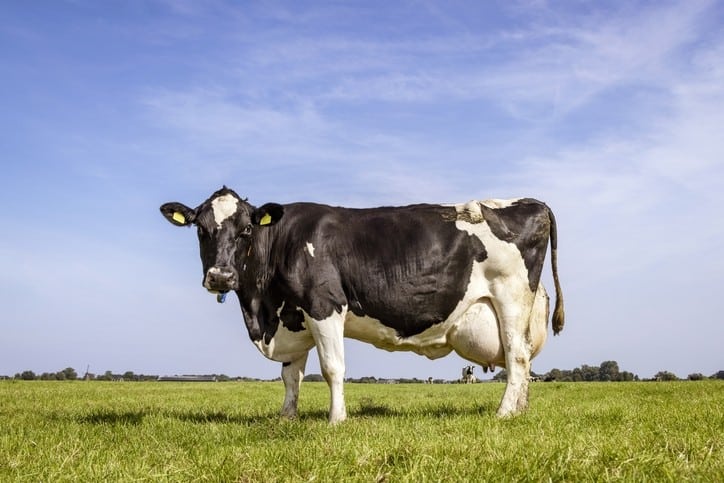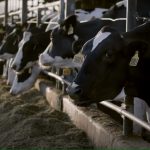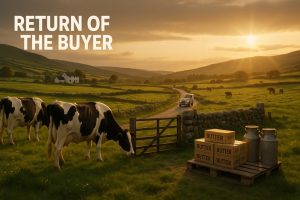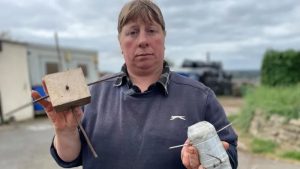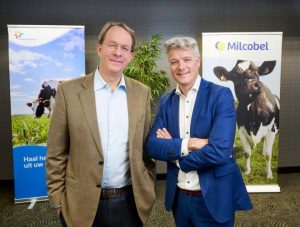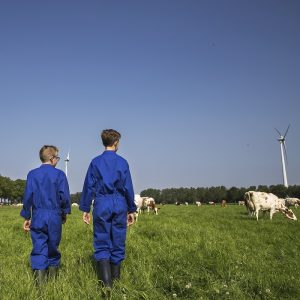
McDonald’s and FrieslandCampina announce a new collaborative effort aimed at an accelerated reduction of greenhouse gas (GHG) emissions on dairy farms.
FrieslandCampina is a key supplier to McDonald’s, providing it essential dairy ingredients. The parties have been working together for over 30 years.
The partnership has evolved to encompass a broader mission, focusing on reducing the carbon footprint associated with dairy production.
Roger Loo, president of professional and trading at FrieslandCampina, said the dairy cooperative looks to measure and track its progress in terms of sustainability goals and driving improvement, and the partnership with McDonalds means it can continue to support and reward its member dairy farmers for their efforts in relation to climate and biodiversity.
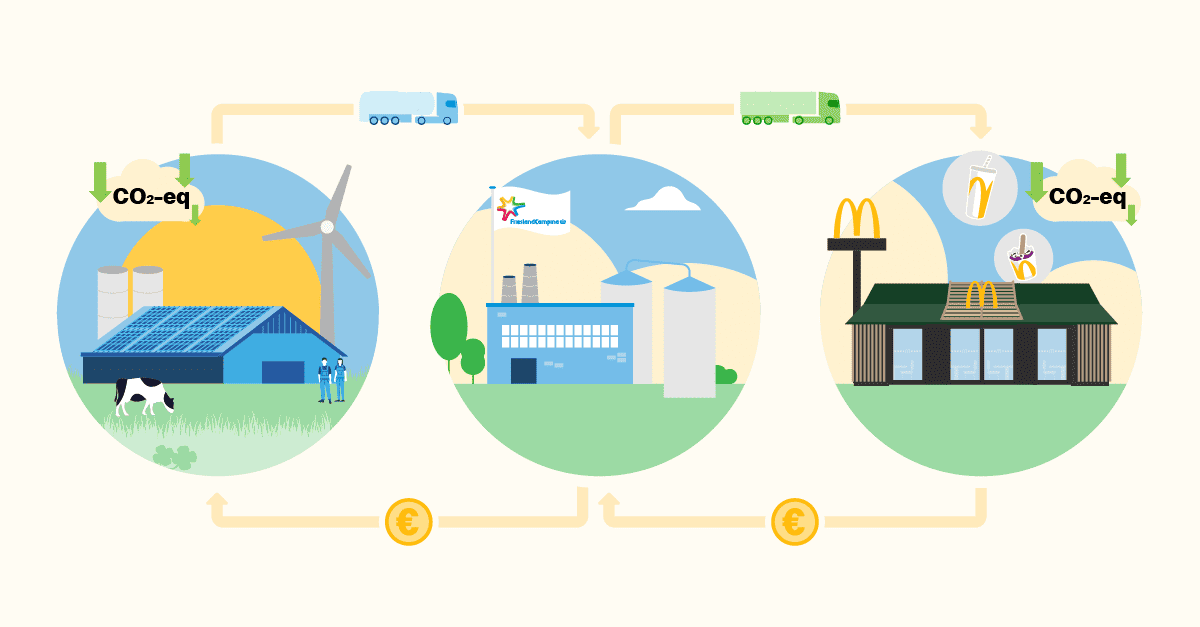
FrieslandCampina comprises 15,137 dairy farmers members, which are spread across the Netherlands, Belgium, and Germany.
Additional alliances
Partnerships are key in relation to accelerating on-farm carbon footprint reduction, according to the Dutch organization, which also announced, in June this year, that it was partnering with Mondelēz International over a four-year period. The goal of that tie-up is for its cooperative farmers to reduce the GHG emissions of milk supplied to the chocolate and biscuit producer by around 14% in 2025, compared to 2019.
That partnership will benefit all member dairy farmers in the Netherlands, Belgium and Germany who reduce GHG emissions on their farms.
And, last year, FrieslandCampina collaborated with Agrifirm and DSM to enable the first large-scale on-farm use of methane emissions targeted feed additive, Bovaer.
The six-month program, which started in the second half of 2022, involved 158 dairy farms and 20,000 cows in the Netherlands. The initiative led to a decrease of 10,000 tons of CO2e in methane emissions, reported the partners.
“The trial confirmed that Bovaer can easily be introduced at scale without affecting animal health, milk production or milk composition. This work supports the quicker adoption of Bovaer by the dairy sector, reducing greenhouse gas (GHG) emissions and helping the Netherlands to reach its climate targets,” said DSM.
Starting this year, farmers in the Netherlands that are using Bovaer in their feed can be recognized for their efforts through the KringloopWijzer program.
Monitoring and tracking progress
FrieslandCampina uses the monitoring tool, the Annual Nutrient Cycling Assessment (KringloopWijzer), to track progress and reward member dairy farmers. That tool gives farm-specific insights and results on climate and biodiversity. Through the Foqus planet sustainable development program, cooperative farmers receive a financial premium on the basis of their results on climate, biodiversity, pasture grazing, animal health and animal welfare.
Members have prior insight into what certain sustainability outcomes at the farm yield financially. The premium for the results that member dairy farmers achieve in relation to GHG emissions can run up to €1.50 per 100 kilos of milk.
“This premium provides an incentive and makes it possible for member dairy farmers to continue to invest in making their own dairy farm more sustainable,” a spokesperson for the cooperative told this publication previously.
